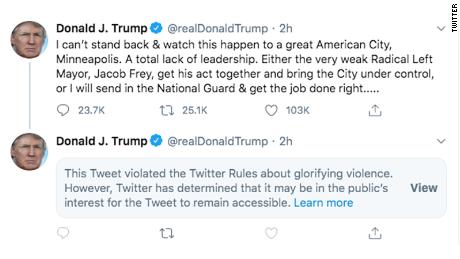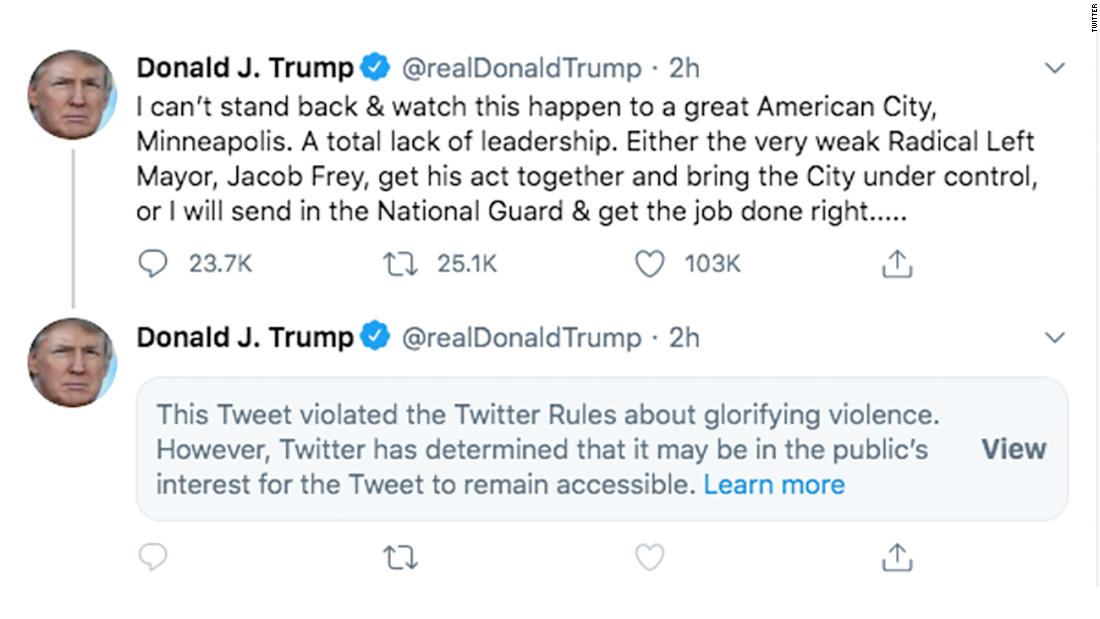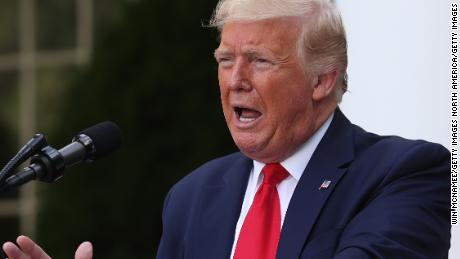Trump tweets threat that ‘looting’ will lead to ‘shooting.’ Twitter put a warning label on it
This means the tweets will not be removed, but will be hidden behind a notice that says “this Tweet violated the Twitter Rules about glorifying violence. However, Twitter has determined that it may be in the public’s interest for the Tweet to remain accessible.” Users can view it if they click past the notice.
Hours after Twitter flagged the tweet from Trump, the official White House account posted the same message. Twitter then took the same action with that message.
“As is standard with this notice, engagements with the Tweet will be limited,” Twitter said in a tweet explaining its earlier decision to place a warning label on Trump’s tweet. “People will be able to Retweet with Comment, but will not be able to Like, Reply or Retweet it.”
A spokesperson for Twitter said the decision was made by teams within the company and CEO Jack Dorsey was informed of the plan before Trump’s tweet was labeled.
Trump continued his criticisms of Twitter on Friday after it labeled his post, tweeting that “it well be regulated.”
The president posted an identical message to Facebook and Facebook-owned Instagram. CNN has reached out to Facebook for comment.


President Donald Trump’s tweet violated rules against “glorifying violence,” according to Twitter.
As cable news networks carried images of fires and destructive protests in Minneapolis, the president tweeted at 12:53 a.m. ET: “these THUGS are dishonoring the memory of George Floyd, and I won’t let that happen. Just spoke to Governor Tim Walz and told him that the Military is with him all the way. Any difficulty and we will assume control but, when the looting starts, the shooting starts. Thank you!”
Some users reported the tweet to Twitter as a rule violation.
Less than two-and-a-half hours later, Twitter took action. “This Tweet violates our policies regarding the glorification of violence based on the historical context of the last line, its connection to violence, and the risk it could inspire similar actions today,” the company said.
“We’ve taken action in the interest of preventing others from being inspired to commit violent acts, but have kept the Tweet on Twitter because it is important that the public still be able to see the Tweet given its relevance to ongoing matters of public importance.”
Facebook came under scrutiny last year for saying it would not fact-check politicians’ posts.
![]()




